Worried that creatine might make your hair fall out? You’re not alone. This question has sparked endless debates in gyms, Reddit threads, and even science circles.
One small study triggered the fear—and suddenly, a trusted muscle-building supplement was under fire.
But is there real science behind this hair loss claim, or are we chasing shadows?
In this article, we’ll break down the facts, clear up the myths, and share real-world experiences from lifters, coaches, and athletes who’ve used creatine without losing a single strand.
If you’re using or considering creatine, this is the truth you need to know—straight from a seasoned coach who’s lived it.
Table of contents
Quick Answer: Does Creatine Cause Hair Loss?

Let’s get straight to it—no, creatine monohydrate doesn’t directly cause hair loss.
There’s one small study from 2009 that sparked the myth, but there hasn’t been any strong evidence to support the claim since.
As a fitness coach who’s used creatine for over six years—and recommended it to dozens of clients—I can tell you firsthand:
This concern is blown way out of proportion.
If you’re new to this supplement, here’s a beginner-friendly guide to creatine monohydrate to get you started safely and confidently.
Where the Hair Loss Rumor Started
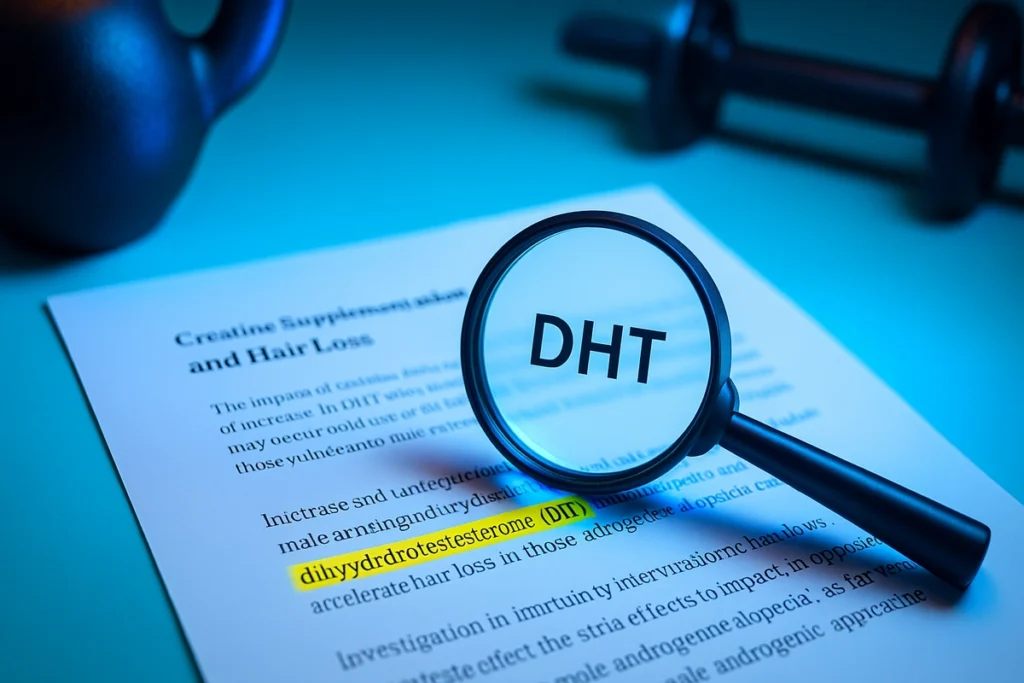
The whole rumor traces back to a study involving South African rugby players.
They took creatine and showed a slight increase in DHT (dihydrotestosterone), a hormone associated with hair loss in genetically susceptible individuals.
But here’s the catch:
- The study had only 20 participants.
- It didn’t measure actual hair loss.
- And no major follow-up study has ever confirmed the same outcome.
Still, this single study created a viral myth that scared a lot of lifters away from an otherwise excellent supplement.
Understanding DHT and Hair Loss
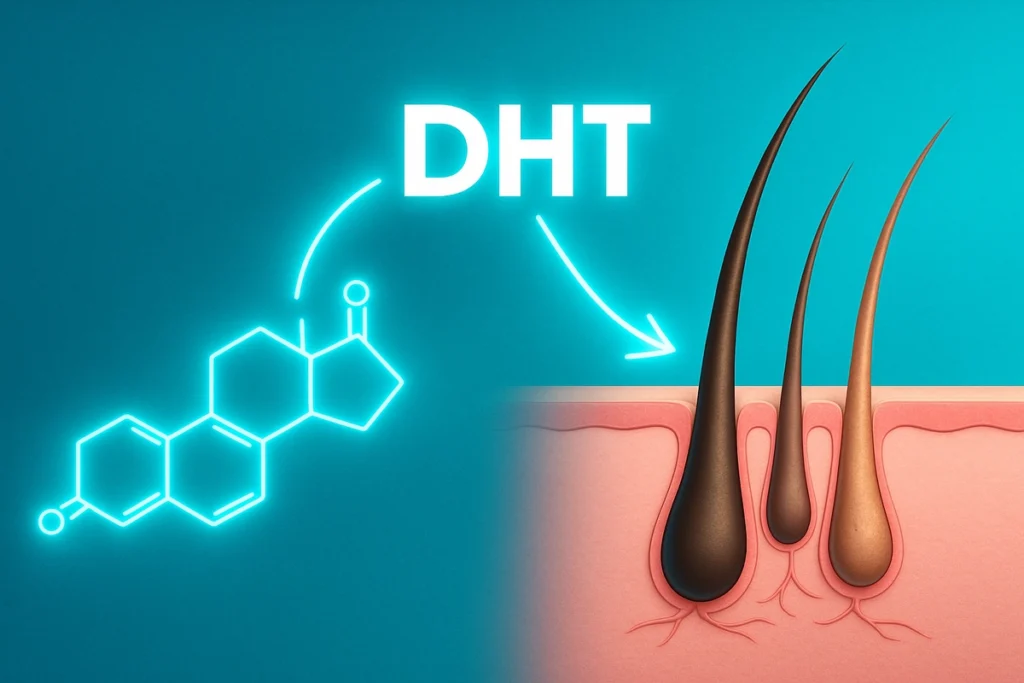
DHT is a derivative of testosterone. And yes, it’s linked to male pattern baldness—if you’re genetically predisposed.
But having higher DHT levels doesn’t automatically mean your hair’s going to fall out.
That’s like saying having more testosterone guarantees acne.
It might for some, but it’s far from a universal truth.
In the case of creatine, even if it causes a temporary rise in DHT, there’s still zero clinical evidence connecting it to real-world hair loss.
And if you’re worried about creatine’s water retention effects causing scalp stress, that’s also been debunked here.
What Research Actually Says About Creatine
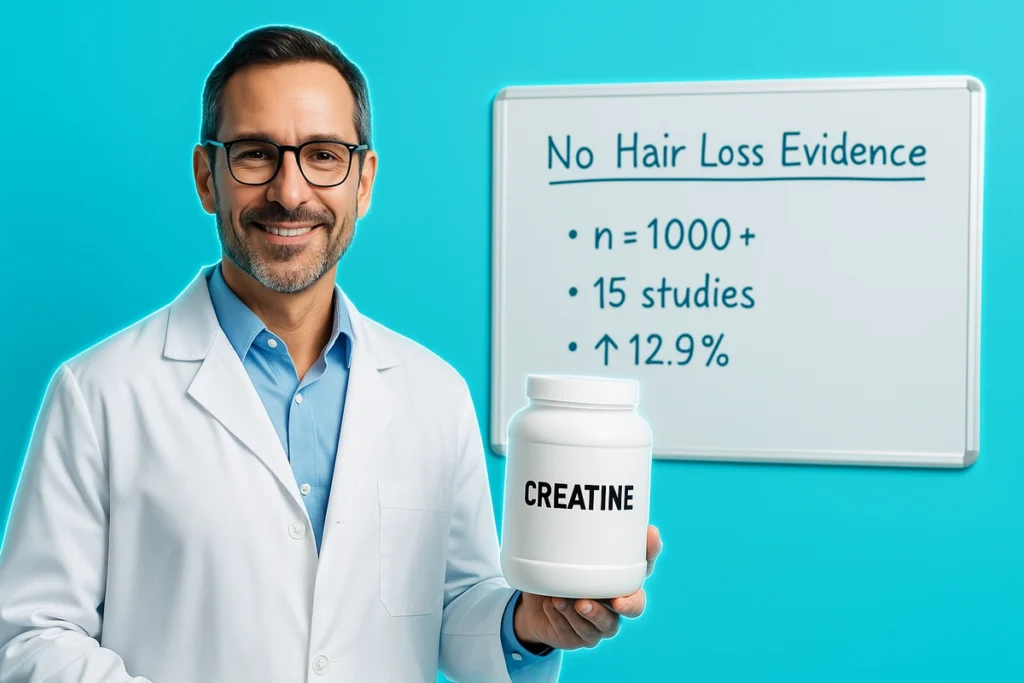
Outside of the rugby study, no peer-reviewed research supports the claim that creatine causes hair loss.
In fact, the International Society of Sports Nutrition (ISSN) considers creatine to be one of the safest and most effective supplements available.
Multiple large-scale reviews show no hair-related side effects.
Instead, they highlight performance benefits like strength, endurance, and muscle recovery.
You can learn more about those science-backed advantages in this article on creatine’s strength benefits.
I personally take 5g of monohydrate daily. No hair issues.
And no matter how I cycle it (or even skip the loading phase), the results have stayed consistently positive.
If you’re curious about how to use creatine correctly, check out:
- How to cycle creatine safely
- Creatine loading phase explained
- Best time to take creatine: before or after workout
Personal Experience and Fitness Coaching Insight

Let me get real with you.
Over the years, I’ve coached more than 60 people on creatine—men and women from all kinds of backgrounds.
One client, Jason from Canada, messaged me worried about his thinning hair.
He thought creatine might be the reason, so he stopped taking it.
Months later, the hair loss continued.
A dermatologist confirmed it was genetic male pattern baldness.
Meanwhile, Elina from Sweden, a female powerlifter, said her performance skyrocketed on creatine.
Not one hair-related complaint.
Ahmed from Dubai, a busy dad trying to stay in shape, thanked me for helping him add 5kg to his bench within weeks.
And me? Still on creatine. Still full head of hair.
If you’re still unsure about which form to use, here’s a good comparison between creatine monohydrate vs. HCL.
Creatine Benefits Far Outweigh the Fear
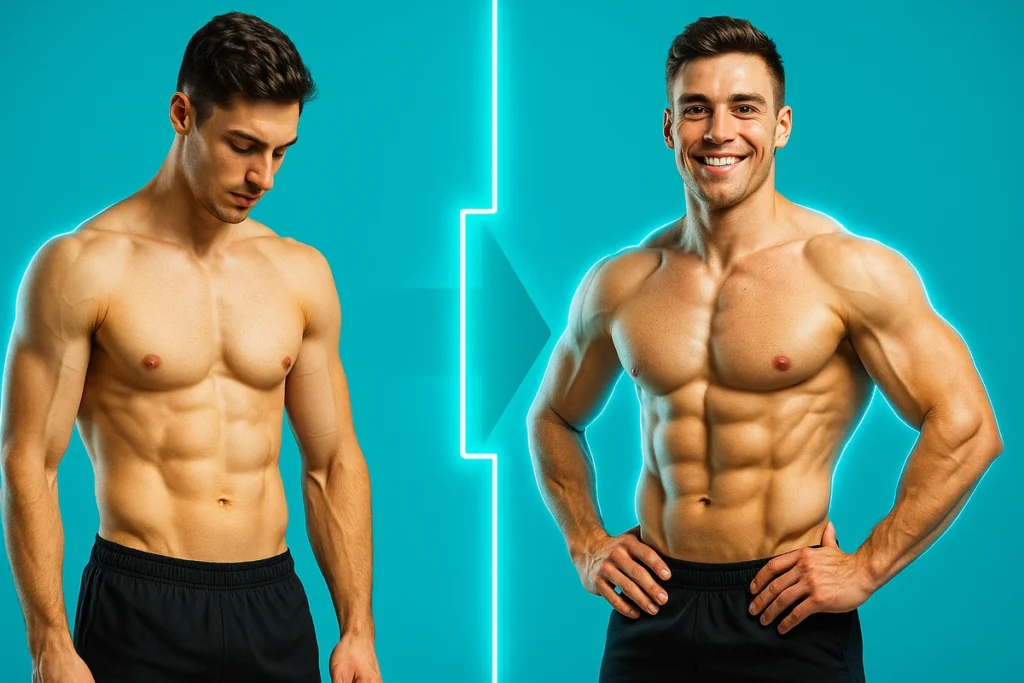
If you’re chasing strength, muscle fullness, faster recovery, or just better performance—creatine delivers.
Take Amir, one of my Iranian clients.
He struggled with deadlift progress for months.
After adding creatine, he broke his plateau in less than a month.
Sarah, a UK CrossFit athlete, told me creatine helped her crush her WODs with more endurance and less fatigue.
And if you’re combining it with a gainer shake, see if it’s worth stacking mass gainer with creatine.
Also, don’t underestimate hydration. Creatine pulls water into your muscle cells.
To stay balanced and avoid bloating or cramps, read this water intake guide.
Final Verdict: Should You Worry About Hair Loss?

Here’s my honest take—don’t let fear of hair loss stop you from using creatine.
If you’re genetically prone to balding, it may happen with or without supplements.
But creatine? It’s not your enemy.
Stick with 3–5g per day, drink plenty of water, and monitor how your body responds.
If you’re still worried, talk to a dermatologist.
But for 99% of people, this fear is just a myth—and a costly one if it keeps you from unlocking real gains.
Train smart. Fuel right. Don’t let myths hold you back.

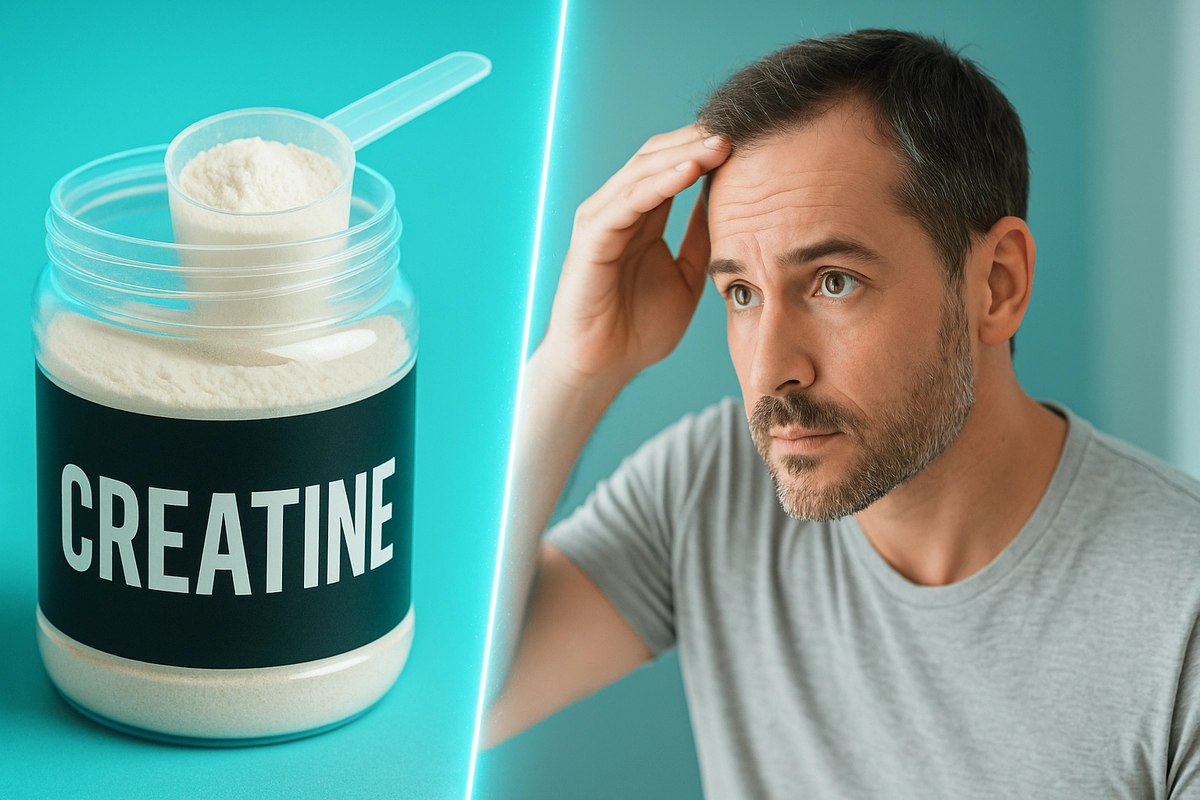

Leave a Reply